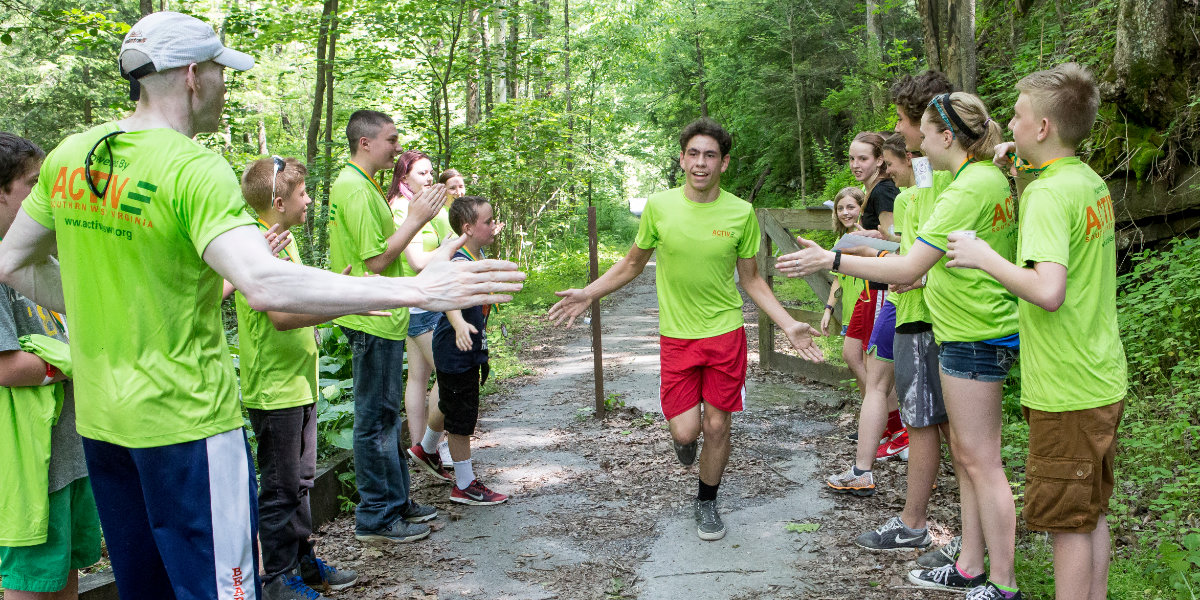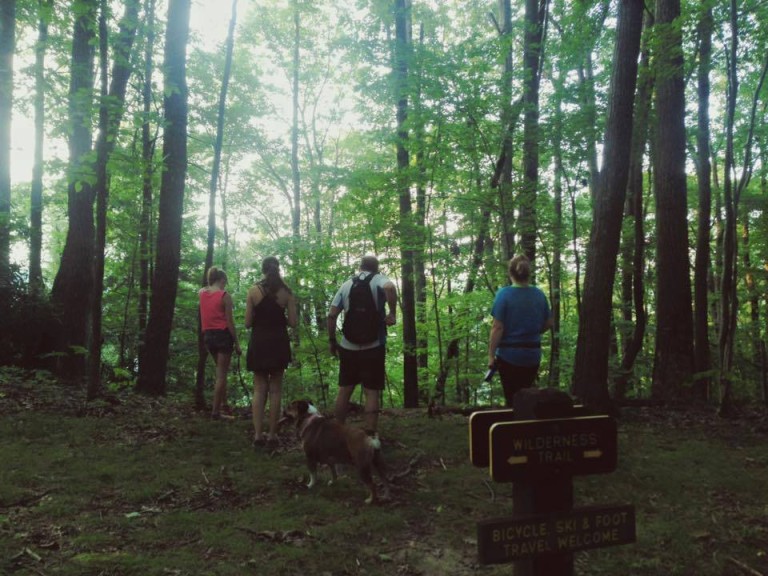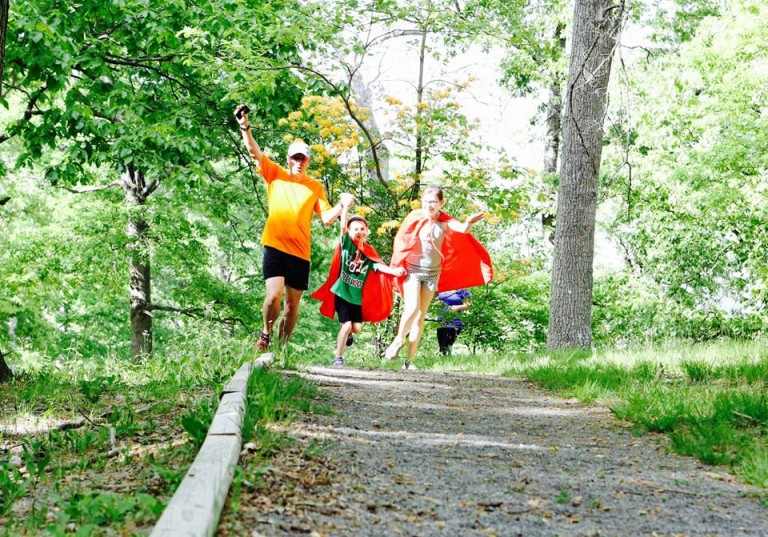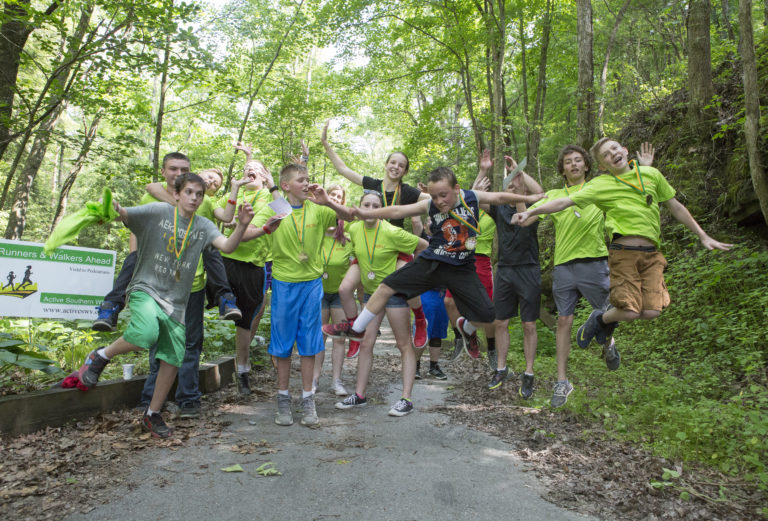
For me, exercise is a lot like washing the dishes. Sometimes you don’t want to do it, but you always feel better after you do; if you have a routine and keep up with it, it’s pretty easy, but if you wait and let the dishes pile up, it can feel a little bit daunting; and it’s a lot more fun if you do it with some friends!
We are told time and time again about the physical and mental health benefits of regular exercise. It helps control weight, combat chronic disease, increase energy, and can even alleviate symptoms of mental illness.[1] With the spotlight shining on the benefits of general exercise, we tend to overlook the added benefits gained from group exercise and how getting active together can help propel us towards our fitness goals.

Exercising together is the perfect way to be social while also being productive and it can make any activity exponentially fun. Whether you’re taking a beautiful walk through the trails while exchanging stories about your day, or doing an intense workout while cheering each other on, social support is a key factor in adhering to exercise. [2] Group exercise helps to mimic a team environment, where individuals can lean on one another for support, while simultaneously pushing and inspiring each other to achieve their goals.
Extrinsic motivators, such as physical appearance, may motivate someone for a short time, but intrinsic factors such as social interaction and enjoyment are proven to have a greater effect on long term adherence to exercise. [3] Consequently, group exercise could be your ticket to the fit for life train! Work together to hold each other accountable, work together to push each other to a higher level of intensity, but most importantly, work together to have FUN and enjoy exercise!


Although exercise can be like washing the dishes, there is one big difference. Exercise is not a chore! Exercise is an opportunity: an opportunity to get active outside, an opportunity to spend time and connect with others, an opportunity to relieve our stress, and an opportunity to take control of our health.
Learn about weekly groups in your county: Community Captain Programs.
Malorie Polster
Active SWV Community Health Director
[1] Taylor, C. B., Sallis, J. F., & Needle, R. (1985). The relation of physical activity and exercise to mental health. Public Health Reports, 100(2), 195–202.
[2] Courneya, K. S., & McAuley, E. (1995, October). Cognitive mediators of the social influence-exercise adherence relationship: A test of the theory of planned behavior [Abstract]. Journal of Behavioral Medicine, 18(5), 499.
[3] Ryan RM, Frederick CM, Lepes D, Rubio N, Sheldon KM. (1997). Intrinsic motivation and exercise adherence. International Journal of Sport Psychology, 28: 335-354.

